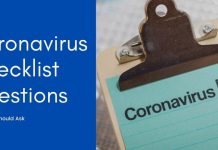Good and effective communication skills is required to achieve success in this competitive world. The earth is dynamic, changing and challenging, so an individual who can put across effectively and skillfully would be noticed and taken.
Communication skills such as reading, writing, listening, and speaking makes work clear and also make others understand easily.
Efficient communication is important which helps us in interpreting the position better, it develops trust and respect and problem solving skills.
Many organizations are becoming global and so to enhance the international sales and earnings good communication skill is mandatory.
There are a few aspects to be followed in order to make your manner of speaking skills effective. Let’s run through 30 points about how to make communication skills effective.
 Top Ways to Develop Effective Communication Skills:
Top Ways to Develop Effective Communication Skills:
1. Listening skill helps understand position better:
The basic criteria to develop effective language is to listen carefully. It is important to pay attention to the opponent’s speech without interrupting.
Do not try to figure out the next instance, while speaking; instead, focus on the message being spoken.
Listen and acknowledge the speaker so that he knows that you’re understood and clear with the message, this will build a stronger connection between the two speakers.
2. Avoid negative emotions:
Make sure to allow the speaker to feel free and share his ideas, opinions, and plans.
Being a speaker, you need to speak in a soft manner by clarifying doubts and avoid conflicts with misunderstandings.
Get rid of negative feelings and pave way for real understanding and problem solving to initiate.
3. Show interest in the conversation:
To develop effective communication it is important to encourage the speaker. When the speaker is in the process of speech making, make sure to show postures that are inviting and open.
Use small verbal comments such as ‘yes’ and ‘uh-huh’ to make him confident and continue his language.
4. Avoid the temptation to interrupt:
The most important habit one should develop is to avoid interrupting a speaker and restructuring what you’re going to speak next.
It is always good manners to take heed to the speaker patiently and wait for your turn to talk.
When your head is elsewhere thinking about your turn or so, the speaker can read it easily from your facial expression that you’re not taking heed. In this way, the speaker’s communication will surely be amended.
5. Give importance to the speaker:
 When a speaker is concentrated and speaking it is important for him to receive an attentive audience which enhances his communication skills.
When a speaker is concentrated and speaking it is important for him to receive an attentive audience which enhances his communication skills.
When the audience are daydreaming, doodling, texting messages and not concentrating would make the speaker lose interest as well. In this way, nonverbal clues can also be missed from the speaker.
6. Focus on nonverbal communication:
It is important to acquire the power to read nonverbal communication. It helps you become connected with others when you’re amongst the audience.
By determining to read nonverbal communication, you can attain the ability to convey your sentiments and also navigate challenging situations. Whether its house or work, better relationships can be developed with nonverbal communication.
7. Efficient communication with nonverbal communication:
Effective communication can be established with nonverbal aspects such as a perfect body posture with arms uncrossed, open stance, standing and keeping eye contact with the one you speak, effective communication can be accomplished.
Body language can be used to enhance verbal messages in the concept of communication.
8. Confident speech is good:
When it’s a lecture or conversation make sure to contribute a confident speech. Be mindful of what you speak and be bold enough to talk out.
People who are hesitant and feared may not be able to make out a good spoken communication. And then make sure to be confident and bold in what you speak to get your words effective.
9. Practicing makes your speech, confident:
When effective and advanced communication skills are to be produced, they initiate with small interactions. Using communication skills from social to professional can be a sound thought to expect effective results.
It invariably needs time to refine communication skills and hence practicing can gain you good opportunities.
10. Establishing eye contact while talking:
No matter you are speaking or listening, looking into the eyes of the person conversing is one technique to get your conversation successful.
When there is eye contact, it pronounces that the conversation is interesting and gets your opponent interested too. When you have eye contact the opponent will also concentrate and listen to you.
11. Fix use of gestures:
Gestures play a key character to make your lecture or conversation interesting and convoluted. Don’t forget to use gestures with your hands and face when you speak to your audience.
The motions can be small with a little group of people and large according to the audience being gathered.
Gestures are one way to make your speech effective and interesting when gestures are used all eyes would be on you and you could gain compliments.
12. Avoid mixed message which in turn avoids confusion:
When you’re using gestures to make sure to utilize the correct match of words, gestures, facial and hand expressions do not mix and match for any spot. Make sure you apply the proper gesture for the correct position.
Mixed messages occur when you’re not confident in your speech and have not understood what you are speaking and hence it is important to avoid mixed messages and postures.
13. Make sure to pose the right body language:
 Body language speaks more than a spoken language and hence it is important to concentrate on the body language being applied during a lecture.
Body language speaks more than a spoken language and hence it is important to concentrate on the body language being applied during a lecture.
When you have an open stance and arms relaxed at your side, it predicts that you’re approachable and would hear what others have to say.
In the like manner when arms are crossed and shoulders are hunched, this predicts disregard in the conversation and aversion to speak, and so appropriate posture and stance is important in conversation to indicate that you’re concerned or not.
14. Speak on aspects which is believable:
The position which is cast-off in while you speak develops a huge effect the way you comprise and interact with others. Be trusted to be honest, respectful, optimistic, sincere, patient and accepting of others.
Be sensitive and make sure to respect others feelings while you speak. Do not speak on the back of others and start complaining about others while in conversation.
15. Speak clearly to grab attention of others:
Whenever you’re conversing or speaking to a group make sure to address clearly and not to maunder.
Be clear in the words you pronounce and also see to it that others realized what you read. When you’re necessitated to repeat your saying makes it in a safer manner.
A clear and perfect speech is what grabs the attention of others. So make sure to speak out clearly and in an understandable way.
16. Focus on vocabulary:
Make sure you concentrate on vocabulary because people judge you through your vocabulary. When you suffer a doubt in pronouncing a word better avoid it rather than using it in an incorrect manner.
So, vocabulary plays a key role in conversing and predicts your knowledge in speech. Hence it is important to practice vocabulary.
17. Usage of appropriate words:
 In a conversation when you do not recognize the meaning of a word, be clear not to practice it. Establish a habit of discovering one new word per day, and also practice it in your conversations frequently.
In a conversation when you do not recognize the meaning of a word, be clear not to practice it. Establish a habit of discovering one new word per day, and also practice it in your conversations frequently.
Whether your discoursing or in a speech make sure to use apt words which makes your idea meaningful and interesting.
There are many words in the dictionary which people are unaware of and have not used. Make sure to use new and effective words to make your speech high graded and interesting.
18. Take care of your speed:
It is invariably suggested that you remember how to speed your conversation becomes. When your language is fast, people would conclude that you’re anxious and uncertain of your spoken language and hence it is significant to get your speech steady, not too fast or overly dull. The rate of speed of your speech makes you talk effective.
19. Voice plays a key part:
To prepare your speech an effective one, voice plays a key part. A high or whiny voice is not what is required. When you have a high and soft voice people would never get hold of you seriously.
Thus it is important to lower the rake of your voice by practicing to sing songs and later on a certain point of time, your voice would go lower.
20. Get your voice lively:
Think back to modulate and animate your voice for an effective delivery which should be performed at periodic intervals. A good instance would be the radio DJ’s who do them competently.
Your voice plays a key role and the tone you speak whether its high pitch or low pitch also matters. A good tone with an audible voice would be perfect to get things right at a speech or conversing.
21. Volume of voice:
It is always well mannered and interesting when you apply the proper volume for your conversation or lecture.
When you’re conversing with a single individual, make sure you sustain a soft and low tone, in the same fashion when you’re presenting a speech to a large audience speaking loudly and clearly are important.
22. Get regular feedback:
When you’re completed with your speech make it a habit to take feedback from the audience so that you would know your mistakes and adjust them the next time. This is one path to get your communication skills effective.
When you get the feedback you can get to know so many aspects which you yourself don’t know and can gain an idea to develop the same. So getting feedback is a good plan after every speech.
23. Avoid unnecessary conversation fillers:
 When you’re conversing make sure you receive rid of unnecessary conversation fillers, the ‘Um’s’ and ‘Ah’s’ are a few of them which can be cut off during discoursing. These fillers make your conversation grade less and uninteresting.
When you’re conversing make sure you receive rid of unnecessary conversation fillers, the ‘Um’s’ and ‘Ah’s’ are a few of them which can be cut off during discoursing. These fillers make your conversation grade less and uninteresting.
When conversation fillers are used another aspect is that people would judge you that you are nervous and also conclude that you aren’t prepared.
24. Use the script for small talks:
Small talks are art which not much are familiar and mostly silence prevails when unknown people are at the opposite side.
To avoid such silences FORD is a script or method which helps you discuss topics without break and also your talk goes to conversation which would be happier and exciting.
FORD is nothing but about family, occupation, recreation and dreams were all these topics have no end when started.
25. Brief and specific conversations win:
Constantly test to get your conversations brief and specific, this will help you convey the message correctly. Pull in your electronic mails and conversations short, correct and specific. This will build your conversation effective.
When you up with long stories, it irritates others and they lose interest whether it’s an email or a speech. Make it specific and to the point along with interest.
26. Empathy is important:
Form the habit of understanding others position and feelings to get your conversation effective. When an individual comes up with a specific feeling leave way for him to speak out his feelings and also respect the same.
When it’s your turn use soothing and apt speech to console or convince him. By developing empathy, unspoken parts of communication can also be understood and help you respond in an efficient way.
27. Use Humor in your conversation:
Endorphins are released when you laugh, which in turn relieves you from tension and anxiousness. Almost all people like to laugh and when you make people laugh they start concentrating and turn interested towards the conversation.
Don’t feel afraid and make certain to include humor in your words. When a sense of bodily fluid is mixed in your words, it makes your voice communication more effective.
28. Present a speech which equalizes people:
When a lecture is delivered make sure it is articulated on an equal basis without patronizing people. Also, get to know that the audience has understood you so that there is no confusion.
Also, establish the habit of getting feedback from people to know what they feel. When you care for people equally they develop confidence and belief in you.
29. Be a resolver with your speech:
When a conflict arises amongst both parties, be an effective mediator by using your communication skills. Listen to both parties and use an efficient manner of speaking to solve the matter that has fired.
But an effective conversation can put things right. Use your speech as a tool and speak in an effective way so that conflicts are resolved and peace prevails. Way of talking has much to do with human’s life.
30. Avoid stress before or after speaking:
 Tension is the biggest hindrance for effective communication and therefore one should avoid stress. When one is stressed words stammer and the right way of speech delivery will be stuck.
Tension is the biggest hindrance for effective communication and therefore one should avoid stress. When one is stressed words stammer and the right way of speech delivery will be stuck.
It is important for all parties to remain serene and also focused to avoid strain. Acquire a deep breath or postpone lecture when you’re stressed.
31. More participation enhances your skills:
Communication skills can be acquired and made effective by participating in more presentations, writing professional emails, interactions and lot more which spruce your conversing skills. The more one participates, the more experience is acquired and skill for speaking enhances each time.
Conclusion:
By sticking with these few effective communication skills can be made efficient and meaningful. It is important to break these categories of skills step by step.
Each language or representation teaches you a lesson on the mistakes that have been fixed. By correcting form such mistakes speaking skills can be made efficient and helpful.










































